The Netflix Horror Movie Guaranteed To Give You Nightmares
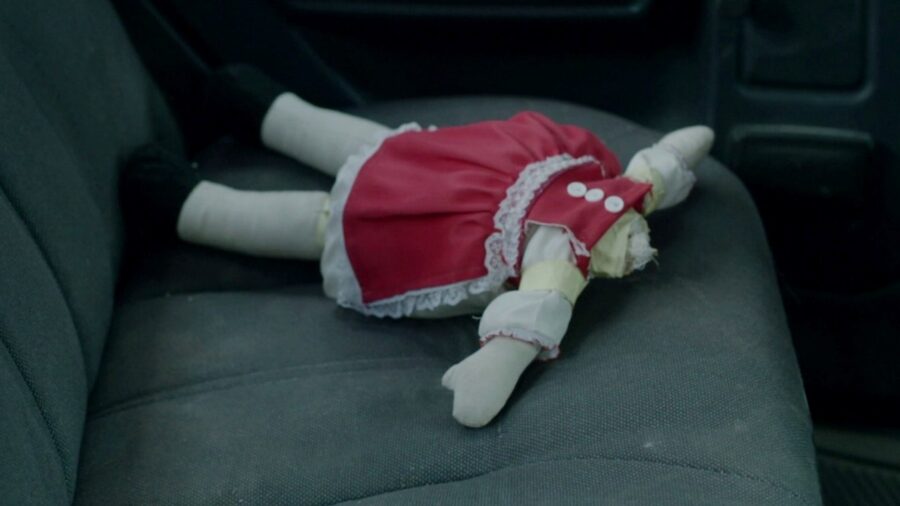
Horror movies define our cinematic era—even redeem it. Hereditary, Get Out, Smile–it seems the very best movies, the projects generating the most word-of-mouth and drawing the most enthusiastic crowds, also happen to scare them. In this way, our’s is a period mirroring that of ’70s New Hollywood, when blockbusters like The Shining revitalized and enriched cinema. And Under the Shadow, a Farsi-language horror film on Netflix, combines the terrifying menace of the supernatural (in this case, Middle Eastern paranormal entities called Djinn) with the comparably scary danger of political oppression (the Islamic Republic’s repression of women).
Under The Shadow Is Utterly Terrifying
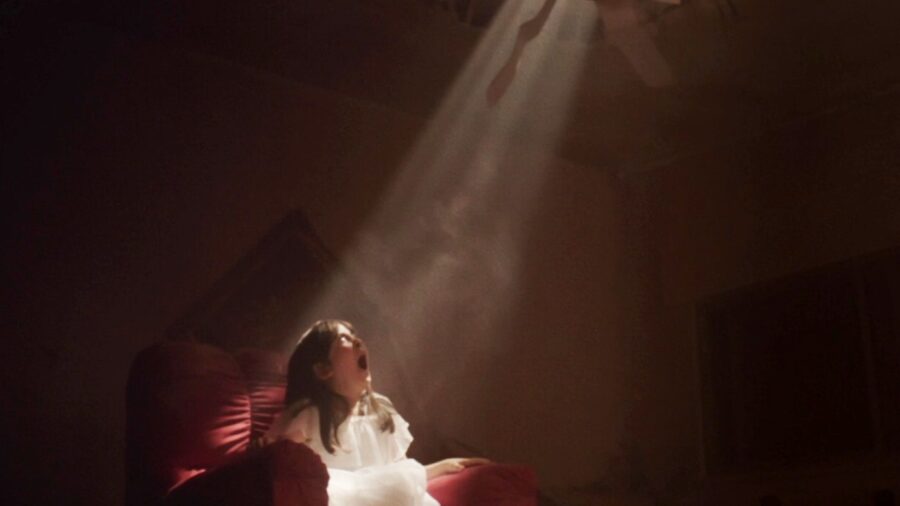
Think Pan’s Labyrinth—like Guillermo Del Toro’s magical realist masterpiece, this project compellingly juxtaposes the absolute horror of totalitarianism with the surreal, or unreal, horror of the folk tale, the paranormal. However, the comparison halts there.
Because, much more than Pan’s Labyrinth, Get Out, and even Hereditary, Under the Shadow terrifies; the film is abundantly, wildly scary. Watching it alone, in the dark, amounts to a legitimate challenge.
Our Hero Is Denied The Life She Yearns For
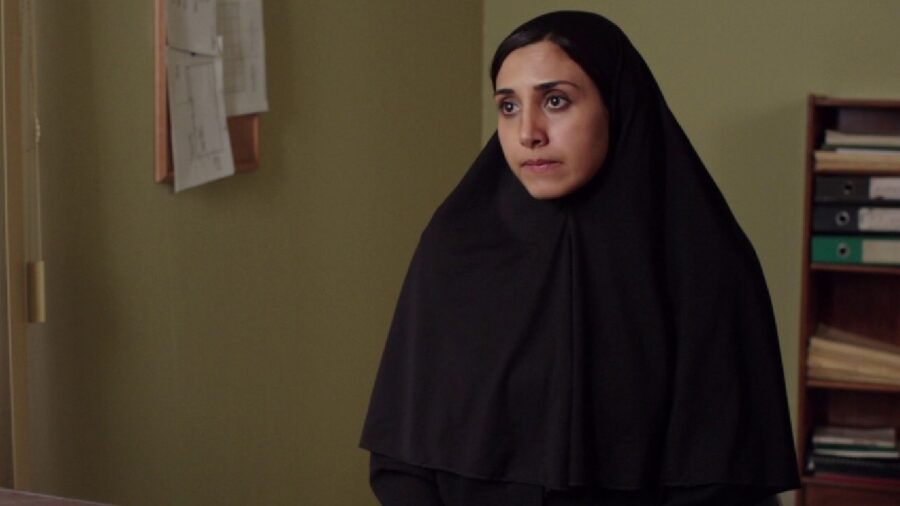
Set in 1980s Tehran, the film stars the excellent Narges Rashidi as Shideh, a stay-at-home mom who yearns to resume her studies as a medical student. However, because Shideh was once a political activist, striving for a leftist cause during the tumultuous days of the Iranian Revolution, the patriarchal, theocratic regime denies her the ability to study.
“Find a new goal in life,” a university administrator tells her, flatly and permanently refusing her reentry to medical school.
War Is Raging
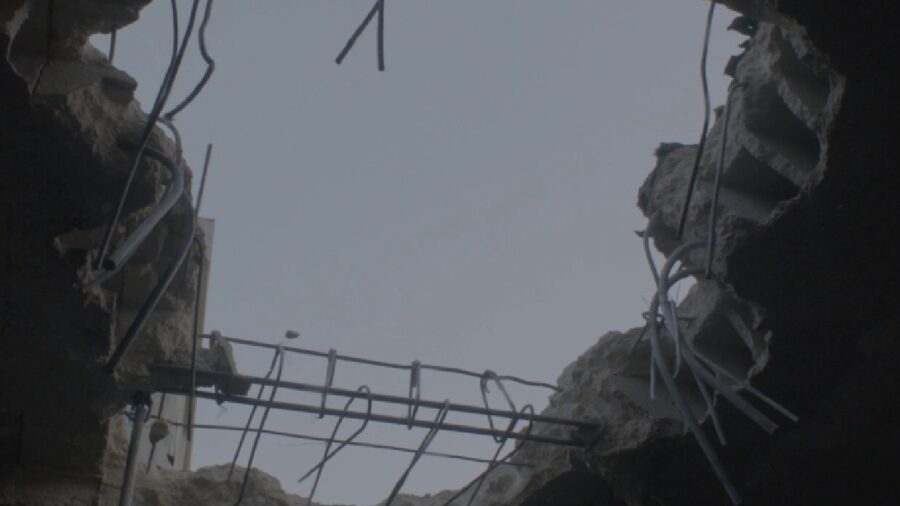
To make matters more difficult, when Under the Shadow begins, war is on: the Iran-Iraq war, to be exact, which spanned most of the ’80s and claimed between one and two million lives.
When the film commences, its characters worriedly discuss the likelihood of missiles soon falling on the Iranian capital, where Shideh lives with her doctor husband, Iraj, played by Avin Manshadi (The Walking Dead) and Dorsa, their young daughter, portrayed by the unreasonably talented child actor, Avin Manshadi.
The missiles are Iraqi projectiles launched during the War of the Cities, a horrific phase of the correspondingly horrific war during which Saddam Hussein’s Iraqi Air Force bombed and pummeled Iranian cities from above.
The Djinn Feed On War
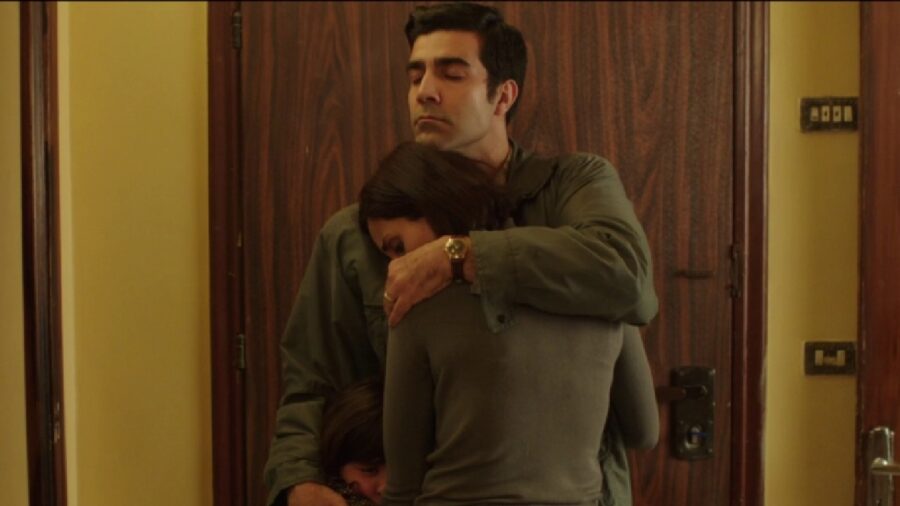
As Iraj is a doctor, he’s called to the front to serve as a medic. Meanwhile, a mysterious young boy, having lost his parents to the war, arrives to stay with his relatives in Shideh’s apartment building. Apparently mute due to the trauma he’s suffered, the boy nonetheless manages to warn young Dorsa about a danger: impending Djinn—the central, horror-specific antagonists of Under the Shadow—who travel on winds and favor places where people undergo stress, unhappiness, and trauma. In other words, war zones.
Soon, an Iraqi missile falls on the roof, though it thankfully fails to explode. This foreboding occurrence marks the arrival of mysterious entities—the Djinn, Dorsa insists—which, in their first act, seem to make Dorsa’s prized doll disappear.
Both The War And The Djinn Come For Mother And Daughter
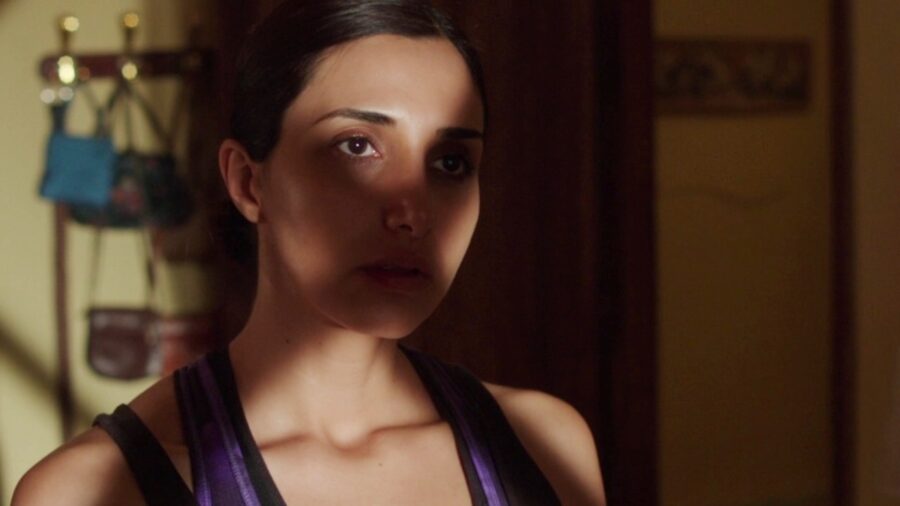
A superstitious neighbor then warns Shideh that the unexplainable disappearance marks the beginning of Djinn’s effort to possess a person; first, they take someone’s beloved possession, and then they make that person their possession.
Under the Shadow severely ramps things up from this point on—but no spoilers follow.
We’ll simply say that things grow quite scary as mother and daughter find themselves trapped in their apartment, by both the physical dangers of war and the creeping menace of Djinn spirits.
The Djinn Reflect The Tyranny Of Shariah Law
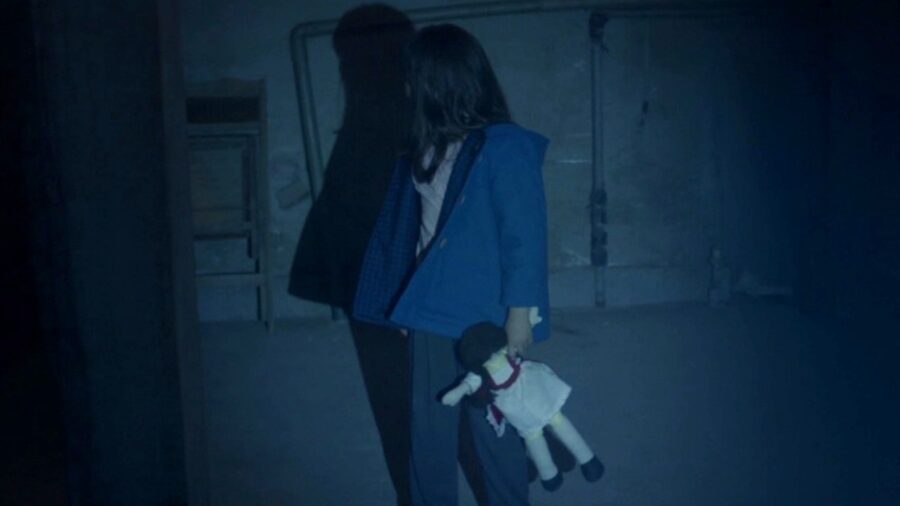
Ultimately, the narrative explores Shideh’s fight against the oppressive limitations imposed by Shariah law, alongside, of course, the fear of the otherworldly forces threatening her daughter. This latter threat grows more palpable than the threat of punishment by the state or the bombs dropping from the sky.
However, neither the oppressive state nor war never fully retreat or defang in Under the Shadow.
For example, in one sequence perfectly characterizing the film’s sensibility, Shideh flees from the house with her daughter, escaping the terrifying Djinn therein. She soon runs into the Morality Police, however, who arrest her. Her crime? Running outside without putting on her veil.
Under The Shadow’s Creators
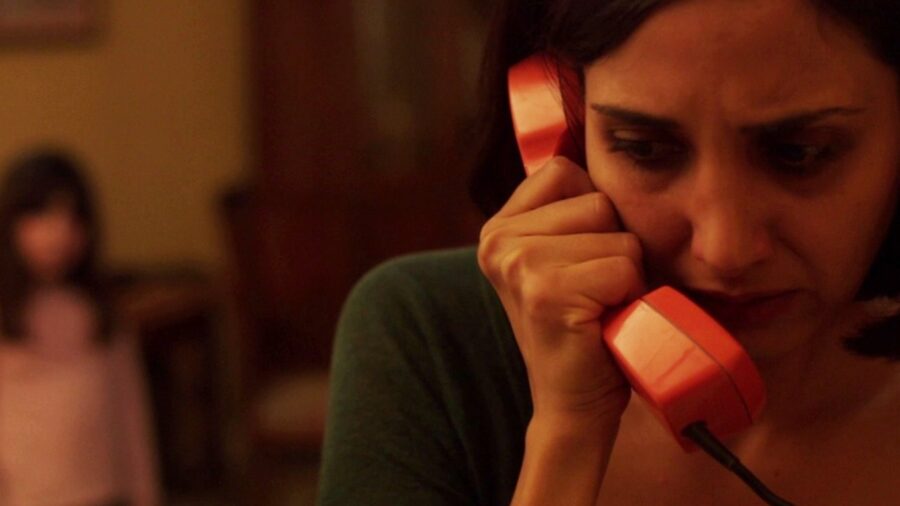
The movie is director Babak Anvari’s feature debut, though it could just as well be the tenth film by a seasoned master. Anvari’s direction triumphs as the film transitions from neorealistic domestic scenes to more stylized and expressionist horror.
The sound design deserves particular attention. It features Lynchian soundscapes that blend the horrors of war with the spectral presence lurking within the family home.
Snubbed By The Oscars
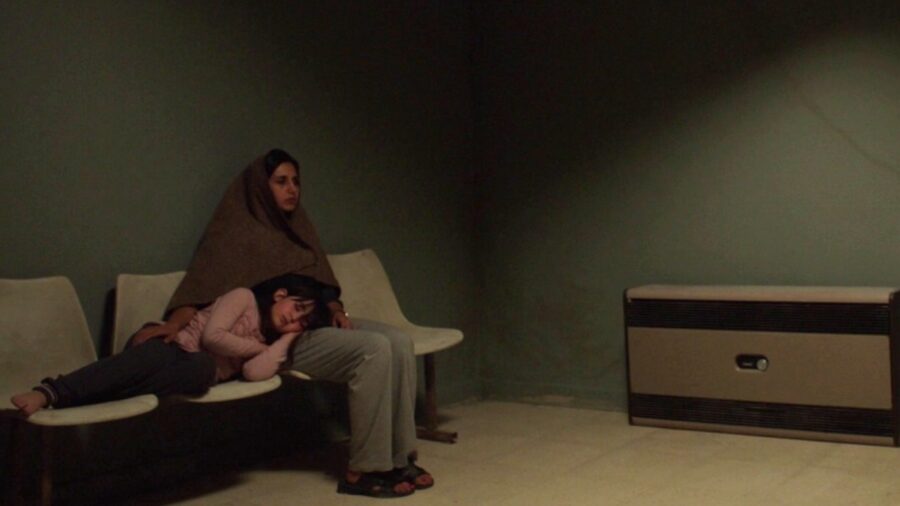
Upon release, Under the Shadow earned rave reviews; Rotten Tomatoes currently assigns it an approval rating of 99 percent based on 92 reviews. Experts admired how the film combined outwardly opposite genres—domestic, feminist social drama with outright, jarring horror—to excellent effect. Moreover, critics lauded the film’s mature incorporation of high-brow themes and thought-provoking subject matter.
Premiering at the 2016 Sundance Film Festival, the film was soon acquired by streaming giant Netflix. The UK would submit it as its entry for the Best Foreign Language Film at the 89th Academy Awards, though the movie was unfortunately not nominated.
Which is a shame–because Under the Shadow deserves all the accolades it can get. Don’t miss it.












